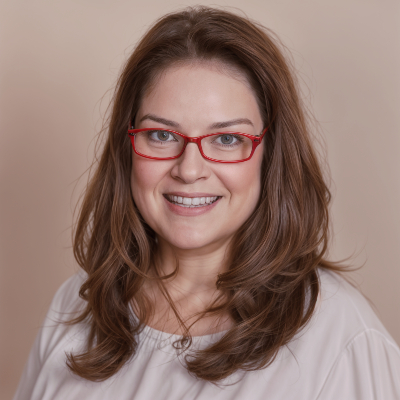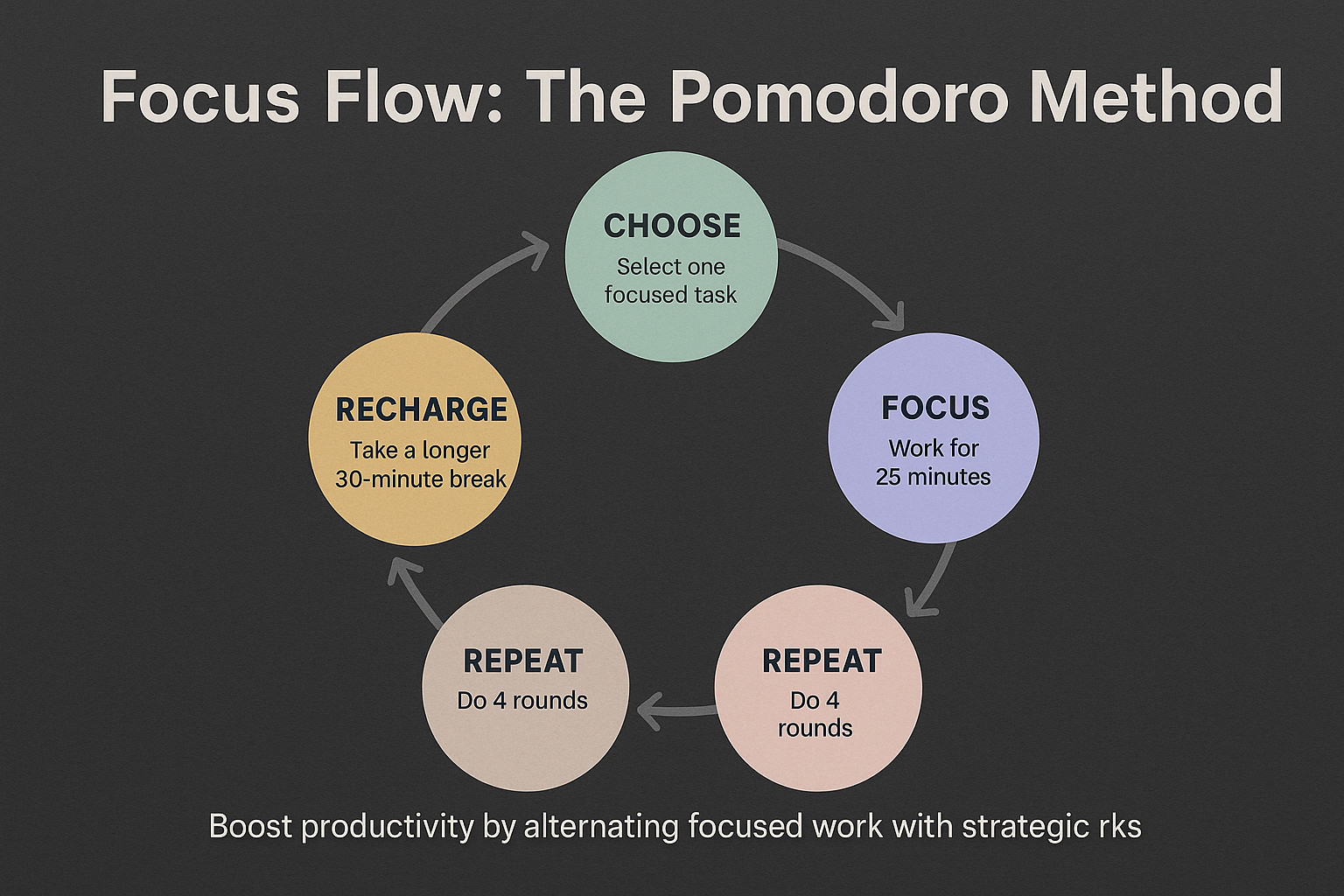What Works for ADHD Focus in Your 30s Success


- Awareness of ADHD patterns like time-blindness and restlessness aids management.
- Break tasks into small steps and use time-blocking or the Pomodoro technique for increased focus.
- Utilize apps like Todoist, Trello, and Forest to organize and motivate your workflow.
- Maintain a tidy, distraction-free workspace and noise-cancelling tools.
- Prioritize exercise, balanced diet, and sleep hygiene for optimal focus.

Do you feel like you’re constantly juggling a million things in your 30s? Between climbing the career ladder, showing up for family, maintaining friendships, and somehow finding time for yourself—it’s a lot for anyone. And when you’re navigating all this with ADHD? I completely understand why some days might feel overwhelming.
ADHD in adults often works behind the scenes in ways that aren’t always obvious to others but can deeply affect your daily life—from keeping your desk organized to being present in conversations with loved ones.
Here’s the silver lining though: with the right tools and strategies in your corner, you absolutely can boost your productivity, regain that sense of control and truly thrive despite ADHD. Think of this guide as your supportive friend offering both practical advice and a compassionate ear as you tackle these unique challenges.
How ADHD Shows Up in Your 30s
ADHD evolves as you grow and takes on different forms in adulthood that can be subtle and significant. You may not have the same obvious symptoms as when you were younger but ADHD is still showing up in your daily life in big ways.
You might notice:
- Losing track of time even when you try to stay on schedule
- Searching for misplaced essentials like keys or your phone
- Having trouble finishing projects once the initial excitement wears off
- Having an internal restlessness that’s hard to quiet
- Getting pulled away from tasks by distractions even when the work is important
- Feeling overwhelmed by everyday responsibilities that others seem to manage with ease
The importance of recognition:
Recognizing these patterns in your own life is the foundation for management. Your awareness of how ADHD affects you uniquely becomes a powerful tool, so you can develop strategies that work with your brain not against it. This awareness can change your personal relationships and professional capabilities.
Many adults with ADHD find their symptoms become more internalized in their 30s as life gets busier. The challenges may not be visible to others but can feel just as big to you as you navigate this decade of life.
Who This Guide Is For
Feeling constantly overwhelmed, forgetful or unable to focus as you navigate your 30s? You’re not alone. Whether you’ve just been diagnosed with ADHD or have always suspected your brain works differently, this guide is for you. If work deadlines slip away, relationships suffer from forgotten commitments or you sense you’re not reaching your full potential—the practical strategies here can help transform your daily life. These aren’t just tips—they’re lifelines designed specifically for 30s somethings like you who are ready to thrive with ADHD, not just survive it.
Techniques for Focus and Productivity
Finding strategies that work with your brain and lifestyle is key to thriving in your 30s. These evidence-based approaches will help you regain control and get more done with less stress.
Mindfulness and Meditation Practices
Just a few minutes of mindfulness a day can change your ability to focus. When your mind is scattered, simple breathing exercises or short meditation sessions can help you center yourself and get back to the present moment. You will find you are less reactive and more thoughtful in your responses—a valuable skill when juggling multiple responsibilities at work and home.
Task Management and Prioritization
When everything feels important nothing gets done. Breaking down overwhelming tasks into smaller steps makes them manageable for your ADHD brain. Tools like planners, Todoist and digital calendars can externalize your memory system so you don’t have to hold everything in your head. As you check off items on your list you will feel a sense of accomplishment that will motivate you to keep going.
Distraction-Free Workspaces
Your brain picks up on every environmental cue—which can be exhausting with ADHD. A tidy and organized workspace can reduce the mental load of constant stimuli. Noise-cancelling headphones can create a bubble of focus when you need it most while apps that block distracting websites will help you stay focused on what matters most.
Time-blocking and Scheduling
Working with your brain’s natural rhythms can make a huge difference in productivity. Methods like time-blocking or the Pomodoro Technique (25 minutes of focus followed by 5-minute breaks) acknowledge that sustained attention is hard with ADHD. These structured approaches provide the external framework your brain needs to stay on track throughout your busy day.

Digital Productivity Tools and Apps
Technology designed for ADHD can be game-changing. Apps like Forest can gamify focus time, while Focus provides background music scientifically designed to enhance concentration. Visual tools like Trello or Notion align with how your ADHD brain processes information so organization feels intuitive rather than forced.
Exercise and Diet
Physical movement is a powerful medicine for the ADHD brain. Even a 20-minute walk can boost your focus for hours afterward by increasing dopamine and norepinephrine—the brain chemicals many ADHD medications target. Pair exercise with brain-supporting nutrients like protein and omega-3s and your nervous system will have the building blocks it needs to function at its best.
Sleep Hygiene
Sleep and ADHD are a common pair and it’s a vicious cycle. Setting sleep and wake times helps regulate your body’s internal clock and a bedtime routine tells your brain it’s time to chill. Better sleep will improve your focus, emotional regulation and energy for your busy day.
Statistics and Research
Studies indicate about 4.4% of adults in the U.S. live with ADHD, highlighting its commonality. Research also reveals adults with ADHD are more likely to experience challenges such as job instability and relationship difficulties. Thankfully, extensive research shows that combining behavioral therapies with medication is highly effective, significantly improving productivity, relationships, and overall quality of life.
Getting Diagnosed and Seeking Help
If you suspect you have ADHD, getting diagnosed is a crucial first step. Consulting with a healthcare professional specializing in ADHD can provide clarity and tailored treatment plans. Early diagnosis can dramatically improve outcomes, helping you access effective therapies, medications, and support systems designed specifically for adult ADHD.
Getting Diagnosed with ADHD
Thinking what you’ve been experiencing all these years might actually be ADHD? You’re not alone. Many people find out their ADHD in their 30s and getting answers feels like finally finding the missing puzzle piece.
How to know it’s time to reach out
If you find yourself nodding along to descriptions of ADHD or if you’ve tried every organization system under the sun and none of them stick, it’s time to talk to a professional. Your struggles aren’t character flaws – they could be symptoms of a treatable condition that millions of adults have.
Taking the first steps towards answers
Starting the diagnosis journey can feel overwhelming but breaking it down makes it doable:
- Reach out to your doctor for a referral to an ADHD specialist.
- Look for psychologists or psychiatrists who specifically mention adult ADHD expertise.
- Before your appointment, write down examples of how attention challenges affect your daily life.
- Consider bringing someone who knows you well to provide additional insight.
- Be prepared to talk about your experiences since childhood as this helps paint the full picture.
What help looks like
Unlike one-size-fits-all approaches, real ADHD help is tailored to you:
- Medication that helps your brain work better (if you and your doc decide it’s right for you)
- Therapy focused on practical strategies for your specific challenges
- ADHD coaching that addresses your unique organizational obstacles
- Lifestyle changes that fit with your treatment plan
Building your support network
You don’t have to do this alone. Finding people who get it can make all the difference:
- Connect with others through ADHD support groups who get it without explanation.
- Work with specialists who see your ADHD brain as different, not deficient.
- Share what you’re learning with close friends or family who want to understand.
- Follow ADHD advocates and educators who share relatable content.
Asking for help isn’t admitting defeat—it’s taking control of your story. With the right help, many people find that understanding their ADHD is the turning point to a life that finally makes sense.
Managing ADHD in Relationships
Relationships need attention to grow and that can be especially hard when your brain is wired differently. Whether you’re dating, in a committed relationship or navigating family dynamics, ADHD can impact how you connect with others in ways you might not even be aware of.
Communication challenges you might recognize When your partner is talking, you might find your mind wandering despite your best efforts. Maybe you interrupt conversations because you’re afraid you’ll forget what you were going to say or you miss important details like anniversaries or plans you made together. These moments aren’t because you don’t care—your brain just processes information differently.
For your partner, these patterns can sometimes feel like you’re not interested or committed and create distance when you’re actually trying your hardest to stay connected. Understanding this disconnect is the first step to bridging it.
ADHD and Career Development
Your 30s are a big time in your career. With ADHD, navigating work, career decisions and professional growth are more complex than just productivity hacks.
Understanding your ideal work environment
Not all work environments are created equal for the ADHD brain. You may find you thrive in some and struggle in others. This isn’t a coincidence – it’s because different environments match your neurology. Ask yourself:
- Project based work versus ongoing operational responsibilities
- Team based work versus individual contributor roles
- External structure and oversight versus autonomy and self-direction
- Creative, varied responsibilities versus consistent, predictable tasks
- High-energy, fast-paced environments versus calm, focused environments
The disclosure decision
Deciding to disclose your ADHD at work is personal. There’s no one right answer, but understanding the pros and cons can help you make an informed choice:
- •Access to formal accommodations
- •Reduced need to mask symptoms
- •Opportunity to educate others about your working style
- •Company culture around neurodiversity
- •Relationship with management
- •Industry norms
If you do decide to disclose, framing the conversation around specific work needs rather than limitations can lead to better outcomes.
Career and advancement
Your ADHD traits may make you perfect for certain careers. Fields that reward creative thinking, problem solving under pressure or the ability to hyperfocus during critical periods often suit you well. Consider how your thinking style matches:
- Entrepreneurship or startup environments
- Creative fields like design, writing or marketing
- Emergency services or crisis management roles
- Sales and relationship building roles
- Technical troubleshooting or problem solving roles
- Navigating performance reviews and advancement
Traditional performance review systems often undervalue neurodiverse employees. Prepare for these conversations by documenting your achievements, especially those that showcase your strengths. Then your contributions will be recognized.
Work with mentors who understand your thinking style – whether they are neurodiverse or just get different ways of thinking – and you’ll get invaluable guidance for long term career development.
Bottom Line
Living with ADHD in your 30s comes with unique challenges, but you’re not alone, and help is available. Consider scheduling an appointment with an ADHD specialist or joining supportive communities. Take the first step towards better management and thriving with ADHD. The path isn’t always straightforward, but with each step, you’re building a life that works with your ADHD rather than against it. You have unique strengths that the world needs—and with the right support and strategies, you can truly thrive.
Frequently Asked Questions
Q: What are the signs of ADHD in your 30s?
A: Time blindness, chronic restlessness, difficulty finishing projects once the novelty wears off, and getting distracted even during important tasks.
Q: How do I structure my day to focus?
A: Break down big tasks into smaller steps, use time blocking or the Pomodoro Technique, and schedule short breaks to match your brain’s attention span.
Q: What apps and tools help adult ADHD productivity?
A: Digital planners like Todoist, visual boards like Trello or Notion, and gamified focus apps like Forest can externalize your to-do list and keep you focused.
Q: Can lifestyle changes really help with ADHD symptoms?
A: Yes—regular exercise (even short walks), a protein- and omega-3-rich diet, and strong sleep hygiene boost neurotransmitters related to focus and emotional regulation.
Q: When should I get evaluated for ADHD?
A: If strategies don’t work, you struggle with everyday responsibilities, or your symptoms have been present since childhood, see a healthcare professional who specializes in adult ADHD.
Disclaimer
This article provides general informational content and does not replace professional medical advice. Always consult healthcare providers for specific diagnosis, treatment and support tailored to your needs.
